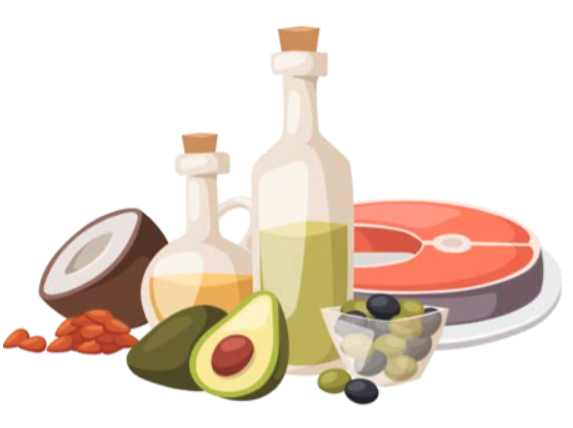|
25/8/2021 0 Comments The Three 'Omegas'The omega fatty acids are essential nutrients which we need to maintain good health. They’re unsaturated fats, and are obtained through our diet.Why aren’t they numbered in order? They’re numbered according to the placement of double bonds within their structure – the number is a part of their chemical description.
Omega-3 plays a variety of roles in the body; it’s associated with brain development, heart health, and bone and joint health. Omega-3 has also been shown to help slow memory decline in people with dementia and improve mental health. Our bodies can’t produce omega-3, so you need to obtain it from your diet; however, it’s thought that most people following a standard Western diet are low in this nutrient. Ensuring adequate omega-3 intake throughout pregnancy is also essential for your baby’s brain development. Omega-6 also needs to be obtained from your food, however most people’s intake is actually higher than it needs to be from a Western diet. Getting the ratio of Omega-6 to Omega-3 is important, as a high level of Omega-6 relative to Omega-3 can contribute to inflammatory conditions. Omega-6 is found in most oils, meats, dairy products, eggs, cereals, and processed foods. Omega-9, like omega-6, is common in most people’s diets, and is one of the nutrients created within our body. It’s found in almost all oils and nuts, and it would be rare to have an inadequate intake. The best sources of omega-3, -6, and -9 As omega-6 and -9 are already abundant in most people’s diets, ensuring adequate omega-3 intake is usually the most important goal. The best dietary source of omega-3 is oily fish, but it can also be found in walnuts, flaxseeds, and chia seeds. The term ‘oily fish’ includes mackerel, tuna, sardines, and salmon – all of these are an excellent addition to a healthy diet. Omega-3 supplements may be useful for some people; but should be high quality, and only taken in addition to a healthy diet – the wide range of nutrients found in food cannot be properly replicated by pills. The World Health Organisation recommends eating two portions of oily fish per week, not only for its omega-3 content but also for vitamins A, D, and B, its lean protein content, and a range of other minerals and essential nutrients
0 Comments
Leave a Reply. |
AuthorAdam's Back is a team of dedicated complimentary health professionals. Our aim is to support you in finding drug-free solutions for better health. Archives
July 2024
Categories |
Search by typing & pressing enter


 RSS Feed
RSS Feed